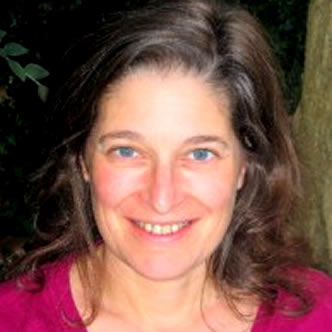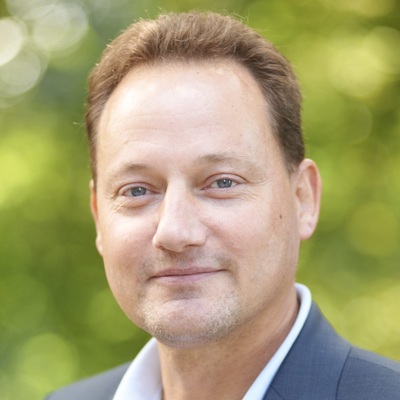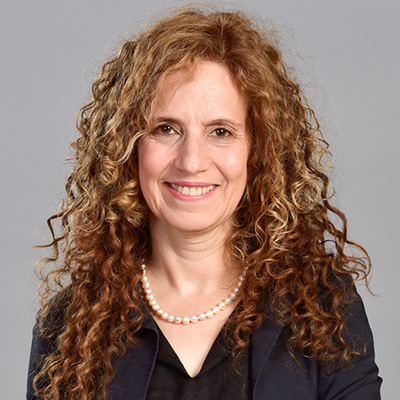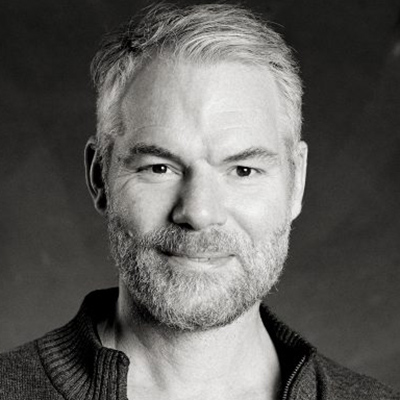Abstracts / Speakers


Our experiences in the womb, at birth and shortly after birth profoundly shape our sense of who we are and our perceptions of the world. This workshop is intended for anyone who is interested in how our earliest experiences shape us. The day will include seminar style teaching, video footage of therapy with babies and some gentle experiential exercises to access our own embodied experience. Topics include.
- How the conventional cultural understanding of babies and prenates limits how we welcome them into the world.
- The four stages of birth of birth from a baby’s perspective (as opposed to the three stages of birth from the obstetrical perspective) and how each of these stages may impact us.
- How each of the stages of birth may set up specific core beliefs and life statements.
- How babies share their prenatal and birth experience through specific somatic gestures and emotional expression.
- How unresolved prenatal and birth trauma can negatively impact bonding after birth and undermine parental confidence.
- How we can learn to listen to babies and to our own early experience in a new, more accurate and empathic way.
- How we can support parents to understand and empathically support babies in integrating stressful and traumatic birth experiences, so as to move from a position to helplessness and overwhelm to one of empowerment and resilience.
Matthew Appleton, MA, RCST, UKCP
- Psychotherapist
- Integrative Baby Therapist
- Pre- and Perinatal Psychology
- Co founder and director of Conscious Embodiment Trainings
- Co-founder, co-director and senior teacher of the Institute of Craniosacral Studies
- Author
- Practice in Bristol, United Kingdom
Jenni Meyer, RN RM BSc Hons RCST
- Integrative Baby Therapist
- Craniosacral Therapist
- Co founder and assistant director of Conscious Embodiment Trainings
- Craniosacral Therapy practice in Bristol, United Kingdom

This workshop takes you on a deep dive into the world of early life adversity and pediatric medical trauma and introduces you to the science and soul of trauma informed developmental care. Learn how to assess the traumatic stress experience of infants, families, and others through the neurosequential model. Explore and debunk myths related to the needs of infants and families in crisis as you discover the power of human connection as a core strategy to buffer the experience of trauma for babies, children, families, and others. You will be introduced to the competencies of a Trauma Informed Professional and experience how these competencies invite you to reconnect with your authentic self through personal reflection and journaling. A framework for a trauma informed approach will introduce you to the principles and values of trauma informed care and challenge you to re-examine how you show up to your patients, their families, and others personally and professionally. Discover how you can become a trauma informed professional.
Mary Coughlin MS, NNP, RNC-E
- Seasoned staff nurse
- Charge nurse
- Neonatal nurse practitioner
- Administrator, educator, coach and mentor
- President and Founder, Caring Essentials Collaborative LLC. Boston
- Author

The functional maturation and development of the brain is based on a complex, coordinated interaction between genetic predispositions and environmental influences. Stressful or traumatic experiences in early life can interfere with these developmental processes and, as a consequence, impair brain function, especially in prefronto-limbic areas. Thus, early life stress (ELS) represents a prominent risk factor for the development of mental disorders such as depression, anxiety disorders, or ADHD. It should be emphasized that the described effects often occur in a sex-specific manner. However, successful coping with early negative experiences may also induce positive adaptive changes in neural structures, which are manifested by improved stress coping or resilience against adverse events at later life periods. An increasing number of studies, including our own, show that these ELS-induced (mal-)adaptive processes are mediated by epigenetic mechanisms (histone modifications, DNA methylation) that result in short- and long-term changes of gene expression and thus influence brain function. In recent studies, we also demonstrated that the specific effects of stressful experiences are the result of a complex interaction between ELS and consecutive or repeated stressful events later in life ("two-(or multiple) hit" concept). Moreover, it has been shown that the stress-induced, epigenetically regulated changes in brain function and behavior can be transmitted into the next generations (inter- and transgenerational transmission). Thus, ELS not only affects the individual, who is directly exposed to stress, but represents a transgenerational programming factor that defines an individual epigenetic predisposition for stress coping in subsequent generations.
apl. Prof. Dr. rer. nat. Jörg Bock
- Neurobiologist
- Apl. Professor for Zoology/Neurobiology, OvGU Magdeburg
- Head of the WG "Epigenetics and Structural Plasticity"
Development and Consequences of Early Neglect and How to Deal With it in Everyday Life, Katrin Boger

Early developmental trauma, which includes neglect, is considered one of the most serious psychological traumas. They leave deep traces in the (child's) soul and their consequences are felt throughout life. Emotionally neglected children often pose great challenges to caregivers, but also to professionals - not only in therapy, but especially in educational/therapeutic everyday life. What are the effects of emotional neglect/early developmental trauma and how can we approach these children with a trauma-sensitive attitude in order to stabilize them and not retraumatize them?
Katrin Boger
- Child and adolescent psychotherapist
- Trauma therapist
- Pedagogue
- Supervisor
- Head of WZPP - "Weiterbildungszentrum für Pädagogik und Psychologie"
- Author
- Aalen, Germany

Chronic early trauma impacts child development in myriad ways that may lead to alterations in general support systems, maturation of the social brain, and the development of well-being and adaptation. In this talk, I will present our conceptual model on resilience and highlight the role of biobehavioral synchrony across multiple biological and behavioral systems as key to resilience. I will then describe findings from a unique cohort of war-exposed children followed from early childhood to young adulthood and show how the mother's synchronous caregiving buffers psychopathology, builds the brain's empathic response, and mediates microbial contribution to PTSD. The talk will end by discussion of sensitive periods and plasticity in the context of early childhood trauma and the suggestion of targeted interventions.
Professor Dr Ruth Feldman
- Simms-Mann professor of social neuroscience
- Head of the Center for Developmental, Social, and Relationship Neuroscience at Reichman University, Israel
- Director of the Irving B. Harris public clinic for young children and their families
- Adjunct professor at Yale University Child Study Center
- Research focus: neurobiology of human attachments, processes of biobehavioral synchrony, and the biology of resilience

Babies reveal a lot about their experience of birth through ‘somatic signals These expressive gestures are meaningful and very specific. Identifying these signals enables us to track exactly why and where in the birth process a baby became overwhelmed and traumatised. Fractiousness and inconsolable crying are usually a sign of unresolved birth trauma. Using video clips of therapeutic work with babies and parents, this talk focusses on recognising the cues from babies that they are experiencing unresolved birth trauma.
Matthew Appleton, MA, RCST, UKCP
- Psychotherapist
- Integrative Baby Therapist
- Pre- and Perinatal Psychology
- Co founder and director of Conscious Embodiment Trainings
- Co-founder, co-director and senior teacher of the Institute of Craniosacral Studies
- Author
- Practice in Bristol, United Kingdom

The intention of neonatal intensive care is to provide high-quality patient care with the aim of optimizing outcomes for the critically ill infant. Although noble and laudable, the provision of intensive care often suggests that the end justifies the means. This general session will introduce the concept of suffering associated with neonatal intensive care for the infant, the family and the clinician and the impact suffering has on human development.
Mary Coughlin MS, NNP, RNC-E
- Seasoned staff nurse
- Charge nurse
- Neonatal nurse practitioner
- Administrator, educator, coach and mentor
- President and Founder, Caring Essentials Collaborative LLC. Boston
- Author
 Every year, around 60,000 babies are born premature or at-risk in Germany. Over the past 20 years, the physical development of premature and at-risk babies has improved in the long term. In contrast, the proportion of psychological problems or disorders among these children has remained the same. We know that psychological problems of attention and social problems can be triggered by stress or pain in the first weeks of life. There is much evidence that this early stress leads to early trauma in the premature and at-risk infants. This becomes visible when infants withdraw, fail to regulate their needs, or when they experience severe arousal states.
To date, there is a lack of studies on the frequency of early traumatization in premature and at-risk infants, which may also be due to the lack of specific methods for diagnosing infants.
Therefore, this presentation will first introduce the "Early Trauma Scale".
When early traumatization becomes apparent, specific intervention is needed, based on the needs of the infant or toddler and their caregivers. This presentation will therefore introduce the treatment approach of affective reanimation, which focuses on the regulation of affects and feelings of infants, toddlers and the caregivers.
Every year, around 60,000 babies are born premature or at-risk in Germany. Over the past 20 years, the physical development of premature and at-risk babies has improved in the long term. In contrast, the proportion of psychological problems or disorders among these children has remained the same. We know that psychological problems of attention and social problems can be triggered by stress or pain in the first weeks of life. There is much evidence that this early stress leads to early trauma in the premature and at-risk infants. This becomes visible when infants withdraw, fail to regulate their needs, or when they experience severe arousal states.
To date, there is a lack of studies on the frequency of early traumatization in premature and at-risk infants, which may also be due to the lack of specific methods for diagnosing infants.
Therefore, this presentation will first introduce the "Early Trauma Scale".
When early traumatization becomes apparent, specific intervention is needed, based on the needs of the infant or toddler and their caregivers. This presentation will therefore introduce the treatment approach of affective reanimation, which focuses on the regulation of affects and feelings of infants, toddlers and the caregivers.
Dr. rer. nat. Markus Wilken
- Psychologist
- Author
- Institut für Sondendependenz, Essen

Not only singular traumatic experiences in early childhood can represent a significant developmental risk, but also sequential traumas in the context of traumatic early relationship experiences. These have a cumulative effect over time. Recent research shows that such relationship and developmental conditions are associated with an increased risk of unfavorable epigenetic and neurobiological changes. These can jeopardize the child's mental and physical health into adulthood. On the other hand, successful relationships that provide the child with sufficient safety, protection, and physical and emotional care can prevent or counteract such risks. In this context, the concept of "interactive repair", i.e. the child's experience that the same attachment figure can make up for traumatic experiences within limits, plays a special role. Therapeutic and educational interventions that aim to support sensitive, reciprocal interactions between parent and infant can even reverse or reduce epigenetic and neurobiological changes. This presentation will highlight which interventions can support this process despite traumatic developmental conditions.
Dr. med. Nikolaus von Hofacker
- Doctor of child and adolescent medicine
- Doctor of child and adolescent psychiatry, psychotherapy
- ae4 Practice for child and adolescent medicine, psychosomatics and psychotherapy in Munich

Babies are embedded in a family system and need the help of parents to regulate their stress levels. The distress of babies who are suffering traumatic ‘imprinting’ from their birth, often destabilises parents, so that the whole family system collapses into distress. This talk looks at how parents can be supported to empathically ‘hear the story of the baby’ and, in doing so, how the family system can shift from a state of distress and dysregulation to meaningful connection and co-regulation.
Matthew Appleton, MA, RCST, UKCP
- Psychotherapist
- Integrative Baby Therapist
- Pre- and Perinatal Psychology
- Co founder and director of Conscious Embodiment Trainings
- Co-founder, co-director and senior teacher of the Institute of Craniosacral Studies
- Author
- Practice in Bristol, United Kingdom

The concept of trauma informed care has its roots in behavioral mental health but has significant biological and psycho-socio-emotional relevance well beyond its roots. This general session will present the principles of a trauma informed approach to care in the NICU; explore the biological correlates of this paradigm and discuss its implications for the infant, the family and society at large.
Mary Coughlin MS, NNP, RNC-E
- Seasoned staff nurse
- Charge nurse
- Neonatal nurse practitioner
- Administrator, educator, coach and mentor
- President and Founder, Caring Essentials Collaborative LLC. Boston
- Author

Very young children are particularly exposed to a wide variety of risks of traumatization in the first years of life. They can quickly find themselves in hopeless situations, e.g. medical interventions, accidents, neglect, etc., in which neither escape nor attack is possible and they are helplessly at their mercy. If this experience is associated with very strong, flooding and possibly also continuous or repetitive stress, it can lead to severe traumatization already in early childhood due to the not yet consolidated personality structure and not yet sufficiently completed brain development, which can result in lifelong stressful effects into old adulthood. Psychotherapeutic treatment options in the first three years of life are very few. Most psychotherapeutic treatment methods for this age start with parent-child relationships or are even limited to pure counseling of the parents. Direct treatment on the child is still the exception. The I.B.T.® method presented here, however, is not limited to pure parent counseling or working on the parent-child relationship, but represents an integrative treatment approach of caregiver work, work on the parent-child relationship and direct trauma-integrative work on the child.
Katrin Boger
- Child and adolescent psychotherapist
- Trauma therapist
- Pedagogue
- Supervisor
- Head of WZPP - Weiterbildungszentrum für Pädagogik und Psychologie (Center for Further Education in Pedagogy and Psychology)
- Author

Professionals in a wide range of institutions who are often exposed to emotionally stressful situations frequently experience feelings of exhaustion, helplessness, powerlessness and anger. These feelings are also typical for people with traumatising experiences. In order to avoid secondary traumatisation or compassion exhaustion, professionals need to be able to acknowledge their own possible vulnerability, respectful interactions within the team, a basic knowledge of the processes of vulnerability and avoidance, as well as practicable options for action. Processes of the autonomous nervous system play a significant role in this, but one that is still not given enough attention. In recent years, a number of impressive findings from neurophysiology have emerged that can make an important contribution to prevention and everyday attentiveness to the phenomena of secondary traumatisation.
Dr. phil. Mauri Fries
- Psychologist
- Family Therapist
- Somatic-Experiencing (SE)® Practioner
- Early Chiuldhood Trainer
- Practice in Leipzig, Germany
Somatic Experiencing® (SE™) is a naturalistic and neurobiological approach to healing trauma and other stress-related disorders. SE offers a framework to assess where a person is “stuck” in the fight, flight, or freeze responses and provides clinical tools to resolve these fixated physiological states. It offers practical skills appropriate to various healing and helping professions, including mental health, medicine, physical and occupational therapies, bodywork, addiction treatment, first response, educators, and more.
During this program, Peter A Levine, Ph.D., the developer of Somatic Experiencing, will demonstrate how SE addresses trauma through a combination of theoretical explanation and body-oriented experiential exercises. Participants in this program will learn the underpinnings of trauma and explore how nervous system regulation and awareness of bodily sensations can bring clients out of a trauma state and into a more embodied and regulated sense of authentic self.
Peter A Levine, Ph.D.
Peter A Levine, Ph.D.
- Biophysicist, psychologist, psychotraumatologist
- Developer and Founder of Somatic Experiencing® (SE™)
- Founder and President of Ergos Institute of Somatic Education
- Author of several best-selling books on trauma